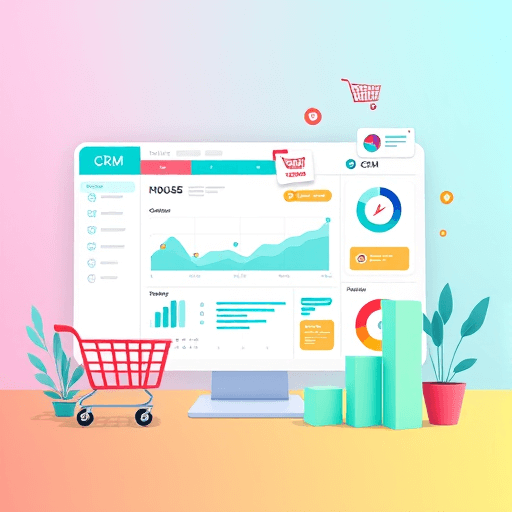Running an online store via WooCommerce is a powerful way to showcase and sell your products. However, many businesses fail to fully harness the potential of this platform by not integrating a Customer Relationship Management (CRM) system. A well-implemented CRM streamlines lead management, nurtures customer relationships, and boosts overall sales.
With CRM integration, you can track every interaction a customer has with your online store. From abandoned carts to repeat purchases, these insights enable targeted marketing campaigns. For instance, you can set automated follow-up emails for customers who left items in their carts, enticing them to return and complete the purchase.
To kickstart your CRM-enhanced WooCommerce journey, explore our Ongoing Maintenance & Support service at XPro Code. We’ll keep your integrations running seamlessly so you can focus on growing your store.
Marketing automation becomes far more effective once you connect WooCommerce with a CRM. By segmenting customers based on behaviors, you can tailor campaigns to unique demographics. This data-driven approach ensures your marketing messages resonate on a more personal level, which can significantly improve conversion rates.
CRM tools often come with robust analytics dashboards. You’ll have a consolidated view of sales metrics, customer lifetime value, and funnel performance. Armed with this information, you can make more informed decisions about promotions, inventory, and customer support—ultimately improving timely delivery of products and services.
Another key benefit is consolidating customer data. Instead of juggling multiple spreadsheets or software, an integrated CRM keeps everything in one place. This helps in accurately tracking leads as they move from prospects to loyal customers, reducing information gaps between departments like sales, marketing, and customer service.
Seamless communication fosters better relationships. When sales reps and marketing teams share the same data, they can respond quickly to customer queries. At XPro Code, we often see how streamlined workflows translate to faster support times, which in turn leads to higher customer satisfaction.
CRM integration can also spotlight upsell and cross-sell opportunities. By analyzing purchase histories, you can promote complementary products or premium options. This tactic not only increases your average order value but also encourages longer-term customer loyalty.

Security remains a priority. Ensure that the CRM and WooCommerce integration you choose respects data privacy and compliance regulations. Safeguarding customer data builds trust, a vital component for any e-commerce store. At XPro Code, we carefully vet third-party integrations to ensure secure transactions.
The transition to a CRM-integrated WooCommerce store needn’t be disruptive. Many CRM platforms provide native WooCommerce plugins or easy-to-implement APIs. The main challenge is mapping out how each piece of customer information should flow between systems, but with proper planning and a reliable partner, the process is smoother.
In the end, strategic CRM integration is about leveraging data to serve customers better. A combination of automation, insightful analytics, and secure data handling sets the stage for sustained growth. If you want your WooCommerce store to become a revenue powerhouse, a CRM might be the missing link.
For more data-driven insights, see our article on “Data-Driven Insights: Leveraging Analytics to Improve Your WordPress Site.”




